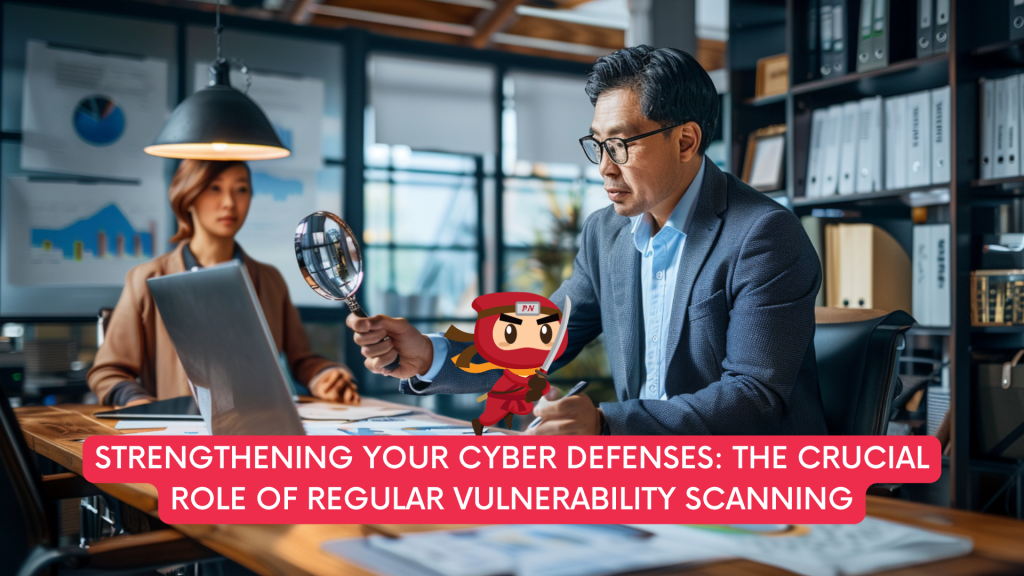
Where cyber threats loom large and data breaches are a constant concern, safeguarding sensitive information is a top priority for organizations worldwide. One of the most effective strategies in this ongoing battle is regular vulnerability scanning. This proactive approach to cybersecurity is indispensable for identifying and addressing potential weaknesses in your systems and networks before they can be exploited by malicious actors. In this article, we’ll delve into the importance of regular vulnerability scanning and how it serves as a vital component of your organization’s defense against cyber threats.
“Emphasizing the importance of regular vulnerability scanning cannot be overstated, as it is a common cause of breaches in protection obligations. These scans provide a valuable opportunity to identify deficiencies in access controls and vulnerabilities with unauthorized software downloads.”
These words underscore the critical role that vulnerability scanning plays in maintaining robust cybersecurity posture. Vulnerability scanning involves the systematic examination of systems, networks, and applications to uncover potential security weaknesses or flaws that could be exploited by cyber attackers. By conducting these scans regularly, organizations gain valuable insights into their security posture and can take proactive measures to address any vulnerabilities before they are exploited.
Data breaches can occur due to various reasons, including inadequate access controls, unpatched software vulnerabilities, and unauthorized software downloads. Vulnerability scanning helps organizations mitigate these risks by:
To maximize the effectiveness of vulnerability scanning efforts, organizations should follow these best practices:
Regular vulnerability scanning is a critical component of effective cybersecurity practices. By proactively identifying and addressing potential weaknesses in systems and networks, organizations can strengthen their defenses, mitigate the risk of data breaches, and safeguard sensitive information from malicious actors. Remember, the importance of regular vulnerability scanning cannot be overstated—it’s a proactive measure that can make all the difference in maintaining a secure and resilient cyber environment.
One of the best ways to combat cybersecurity threats in today’s modern time is by conducting regular penetration testing. Remember, if you suffered a data breach under the PDPA, you could be liable for up to a financial penalty of S$1,000,000. Luckily, Privacy Ninja is here to help you check if there are any vulnerabilities in your system.
Privacy Ninja can assist you in this endeavor by providing penetration testing services, which check if your organisation has vulnerabilities that could be exploited by bad actors, whether in your email environment or your organisation in general.
Privacy Ninja has years of experience in cybersecurity and offers quality services, as evidenced by the feedback from its clients as the years go by. It is a licensed VAPT provider (Penetration Testing Service License No. CS/PTS/C-2022-0128) and has the best team of professionals who are experts in their field, leaving no stone unturned in checking for any vulnerabilities in your system or organisation as a whole.
Moreover, we work hand in hand with our clients and deliver results on time, especially when there is a hint of vulnerabilities that need to be checked. Most importantly, Privacy Ninja has a Price Beat Guarantee, which makes the service even more affordable but will not leave the quality of services each client deserves.
What are you waiting for? Choose Privacy Ninja now as your penetration testing partner and experience the quality of services brought to you by cybersecurity experts at an affordable price, Price Beat Guarantee!
Role of Enhanced Access Controls in Safeguarding Personal Data in Telecommunications that every Organisation in…
Effective Incident Response Procedures in Strengthening Data Security that every Organisation in Singapore should know…
Enhancing Data Security with Multi-Factor Authentication that every Organisation in Singapore should know. Enhancing Data…
Strong Password Policy as a first line of defense against data breaches for Organisations in…
Importance of Efficient Access Controls that every Organisation in Singapore should take note of. Enhancing…
Prioritizing Security Measures When Launching a Webpage That Every Organisation in Singapore should take note…
This website uses cookies.